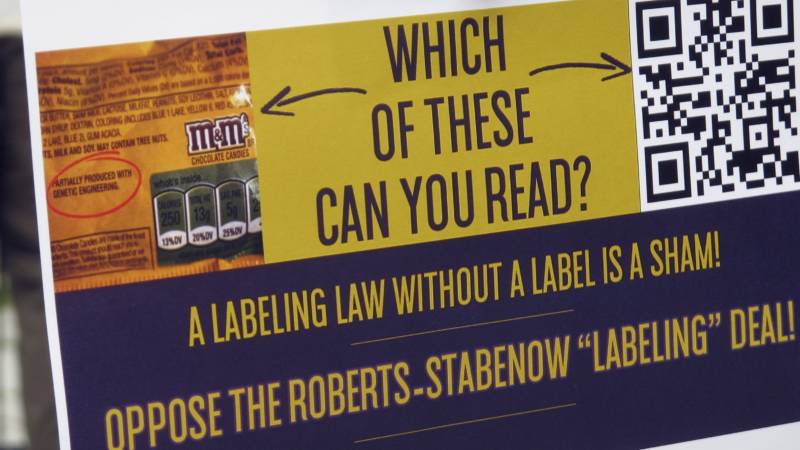After months of bargaining and backroom arguments, the Senate has voted in favor of a new national standard for labeling food that contains ingredients from genetically modified crops. The essence of the deal: Companies will have to disclose their GMO ingredients, but they won't have to put that information right on the label.
Many food companies are fiercely opposed to such GMO labels because they believe consumers will perceive them — incorrectly — as a warning that those products are nutritionally inferior or even unsafe to eat.
If this bill becomes law, companies will be allowed instead to disclose their GMO ingredients through a QR code on the package. That's the kind of square bar code that you've seen on airline boarding passes. Consumers could scan that code with their smartphones to retrieve the information. Small companies could just print a phone number or a web address where consumers could find out whether a particular product contains GMOs.
Many advocates of GMO labeling attacked the bill. Wenonah Hauter, executive director of Food and Water Watch, released a statement calling it "a slap in the face for all of the activists" who have worked to pass mandatory GMO labels. Senators from Vermont opposed the bill because it strikes down Vermont's own law that required GMO labels right on the package.
But the Senate proposal won support from the Organic Trade Association, which represents major organic food companies and has long supported labeling of GMOs. On June 27, the leaders of the OTA sent a long and occasionally anguished-sounding message to the OTA membership, explaining why they supported the Senate bill. They argued that Congress was inevitably going to pass some sort of bill to preempt Vermont's labeling law, and that this proposal contained key advantages for the organic industry.
